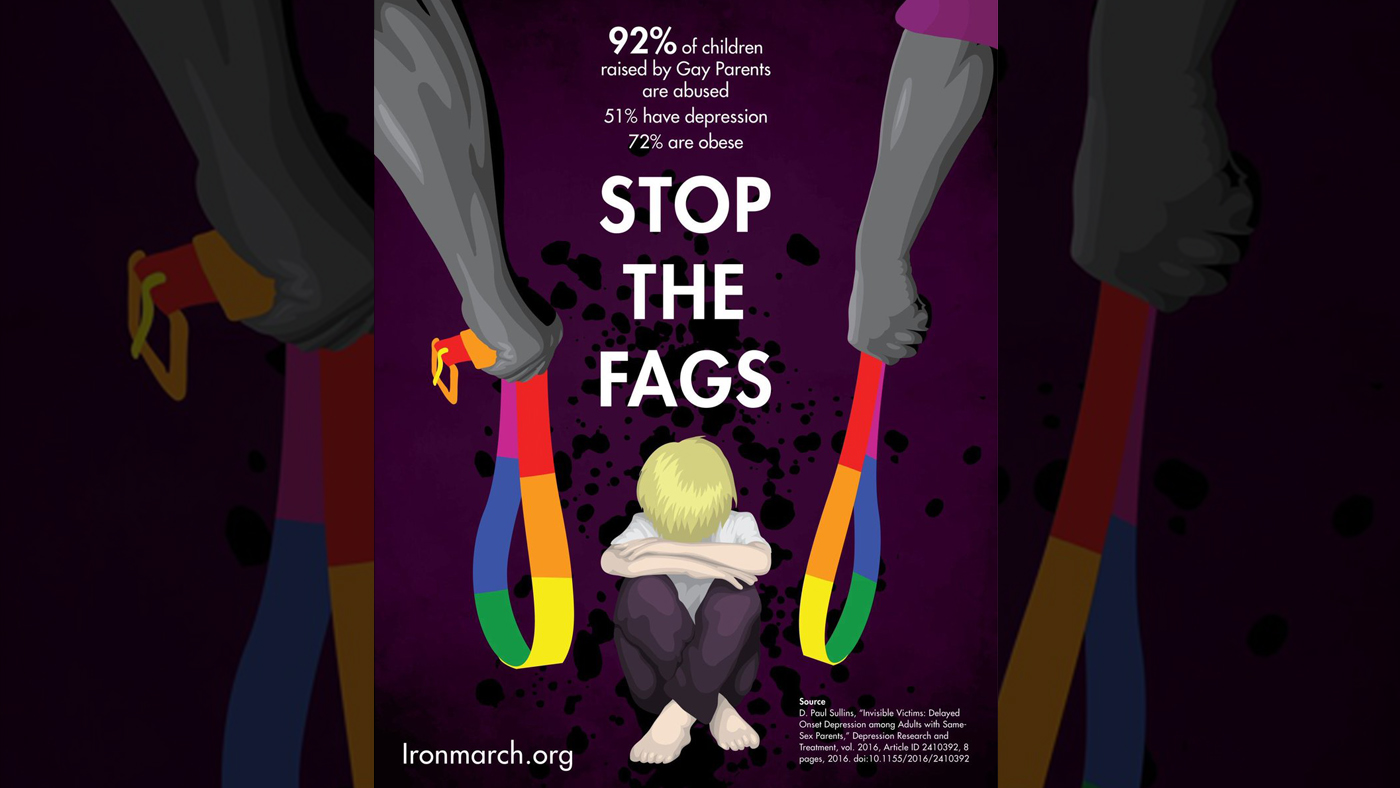'Stop the fags' poster appears in Melbourne
Homophobic attack on gay parents comes as Australia prepares to vote on gay marriage

A free daily email with the biggest news stories of the day – and the best features from TheWeek.com
You are now subscribed
Your newsletter sign-up was successful
A poster bearing the slogan "Stop the fags" has appeared on a street in the centre of Melbourne as Australians prepare to vote on same-sex marriage.
The flyer shows a child cowering before two figures carrying belts patterned with the rainbow stripes of the LGBT flag and claims that 92 per cent of children raised by gay parents are abused - a figure taken from a single widely discredited study.
By the time a council worker had been dispatched to Heffernan Lane, the poster had been removed, ABC reports.
The Week
Escape your echo chamber. Get the facts behind the news, plus analysis from multiple perspectives.

Sign up for The Week's Free Newsletters
From our morning news briefing to a weekly Good News Newsletter, get the best of The Week delivered directly to your inbox.
From our morning news briefing to a weekly Good News Newsletter, get the best of The Week delivered directly to your inbox.
However, photos of the sign had already gone viral, with Australians expressing horror and disgust on social media.
The statistics cited on the poster are based on a 2016 study by Reverend Paul Sullins, an associate professor at the Catholic University of America, whose research is often cited by opponents of same-sex adoption.
Stanford University sociologist Michael Rosenfeld told The Atlantic that academics like Sullins represented a "noisy fringe" espousing views which hold "little or no credibility" to the mainstream consensus.
Of 79 studies looking at children raised in same-sex households gathered by Columbia Law School, all but four found no significant difference in outcome for children of gay parents compared to their peers in heterosexual households.
A free daily email with the biggest news stories of the day – and the best features from TheWeek.com
Nathaniel Frank, the head of the Columbia project, says that the four dissenting studies - including Sullins' 2016 paper - were all authored by religiously motivated authors. "Their transparent efforts to commandeer an entire social science field to advance a religious agenda makes their scientific claims - and them - into laughing stocks," he wrote on Slate.
Australians have until Thursday to register to vote in the all-postal ballot, which will be conducted between 12 September and 7 November.
While some pro-equality Australians welcome the chance to express their support for gay marriage, others see the non-binding vote as a stalling tactic and an insult to gay Australians.
In an impassioned response to the poster incident, leader of the opposition Bill Shorten said his Labor party had opposed the vote "because we feared exactly this kind of hurtful filth would emerge".
"This kind of garbage isn't 'debate', it's abuse," he wrote on Facebook. "I'm so sorry that LGBTI Australians have to put up with it. Let's make sure there's an overwhelming 'Yes' vote in response."
A poll conducted for The Australian last week indicates that 63 per cent of Australians are planning to vote in favour of gay marriage, with 30 per cent opposed and seven per cent still unsure.